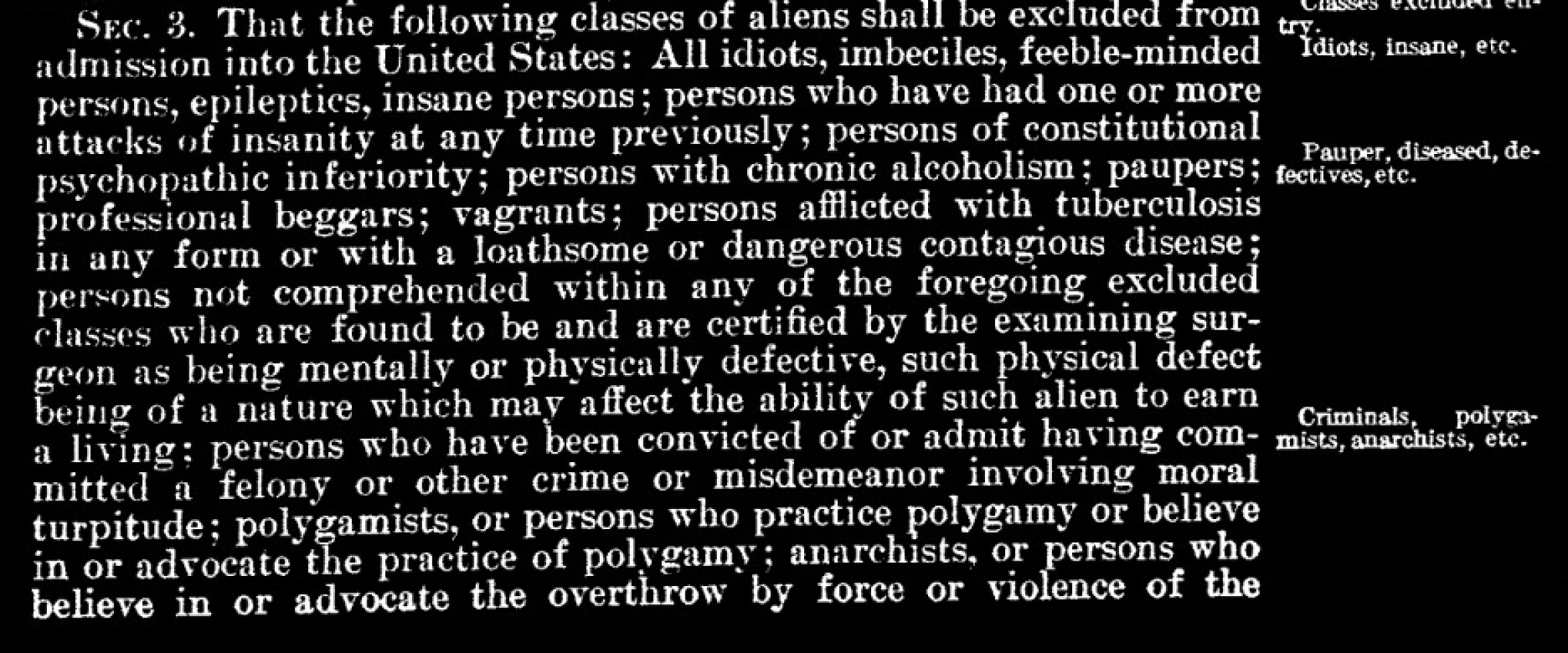Embodying Liberty: American Jewish Attorneys and the Case for Humanizing Public Charge

|
Max Weinreich Fellowship Lecture in American Jewish Studies
The Rose and Isidore Drench Memorial Fellowship and the Dora and Mayer Tendler Endowed Fellowship in Jewish Studies |
Admission: Free
|
In 1891, the United States Congress codified a host of physical and mental conditions that would close America’s gates to hopeful immigrants. Since 1882, this policy—the public charge provision—had functioned as a primary means of restricting immigration. While its commodification of health and pathologization of poverty affected all immigrants, eastern European Jews particularly felt its impact, capturing the attention of American Jewish lawyers. Hannah Zaves-Greene examines the legal advocacy of Max Kohler, Abram Elkus, Simon Wolf, and Louis Marshall, American Jewish attorneys who marshalled their deep knowledge of American jurisprudence to defang the law. Focusing on Kohler’s work, we will examine his pro bono defenses of two young Jewish women, who each—about a decade apart—faced the state’s allegation that they had become medical public charges. As he dealt with local officials and argued before the courts, Kohler meticulously framed his opposition to public charge, articulating his philosophy of American citizenship at the nexus of disability and national belonging.
About the Speaker
Hannah Zaves-Greene is a doctoral candidate in American Jewish history at New York University’s Department of Hebrew and Judaic Studies. She is currently the Fellow in American Jewish Studies at the YIVO Institute for Jewish Research, and a recipient of the Hadassah-Brandeis Institute Research Award. Her dissertation, Able to Be American: American Jews and the Public Charge Provision in United States Immigration Policy, 1891-1934, explores how American Jewish women and men engaged with discrimination on the basis of health, disability, and gender in federal immigration law and its administration. She has taught at both the New School for Social Research and Cooper Union, and has published articles in both AJS Review and American Jewish History.




